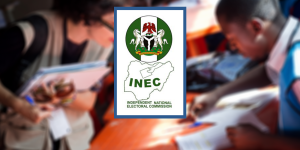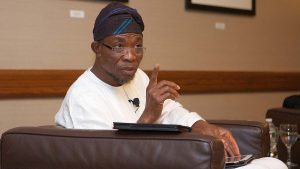GOVERNOR OBASEKI AND NIGERIA’S BLEAK FUTURE ECONOMY

Nigeria’s debt-to-GDP ratio has been rising, but with the addition of ways and means, it is currently at 35.2%. The total debt owed by the government is $101.9 billion as of 30th September 2022, with $39.6 billion being external debt and $62.2 billion being domestic debt.
Amidst declining revenue and foreign exchange earnings coupled with rising debt service payments, low crude oil production, a United Nations Development Programme (UNDP) report on Nigeria, has declared that the country’s economy is in very bad shape. Governor Obaseki is worried over Nigeria’s bleak future economy.
According to the report, which was launched August 10, 2022, the COVID-19 pandemic has been detrimental to Nigeria’s economy, now made worse by a decline in revenue and foreign exchange earnings due largely to the fall in oil prices and reduced demand. The report also noted that the decline in revenue meant an overdependence on borrowing and an increased debt service payment with more than half of the annual Federal Government revenues being used to service debts.
No doubt, Governor Obaseki has been quite prescient and outspoken in calling public attention to emerging threats to the economy, and the way forward. This is not the first time he would raise such a red flag on the economy. In 2020, he alerted the nation that the Central Bank of Nigeria (CBN) was printing the local currency to make up for the shortfall of revenue shared monthly to the three tiers of government. According to him, government resorted to this measure in 2020 because the Nigerian National Petroleum Company Limited (NNPCL) was no longer remitting proceeds from the sale of crude oil to the Federation Account in line with Section 162(2) of the 1999 Constitution (as amended) due to fuel subsidy payments.
Though the federal government initially tried to debunk the report, the CBN later acknowledged that, indeed, it did so, to the tune of N22.7trillion through the ‘Ways and Means’ Advances. The CBN Governor, Godwin Emefiele, said it was for budget deficits. Last week, Obaseki was vindicated following last week’s Senate approval of the CBN’s Ways and Means Advances to the federal government.
Therefore, Obaseki’s new intervention is apt and timely. Already, Nigerians are worried over worries over Nigeria’s soaring public debt burden currently put at N77trillion (including the N22.7trillion W&M) and the likely implication of default in repayment of some of the maturing loans that will be inherited by the incoming administration. Experts have recently decried the poor application of these loans to the economy and the impact on the citizens. Apart from the fear of default on the loans, a downgrade of Nigeria’s bonds in the capital/international market is imminent.
The Edo State Governor, Godwin Obaseki, in May 2022 lamented that the over-dependence on oil is killing the nation’s economy. Obaseki disclosed this when members of the Plantation Owners Forum of Nigeria (POFON), paid him a courtesy visit in Benin City. He said the dependence on oil is unsustainable and that increased investment in agriculture will enable the country to grow sufficient produce and ensure food security, create jobs and improve the livelihoods of citizens.
“As a country, it is all about economic competitiveness. The current DNA of the Nigerian economy is being forced to change. That means our over-reliance on crude oil has not increased our global competitiveness, particularly in the oil trade.
“It’s really scary that we cannot continue in this direction. Last week, Indonesia and Malaysia banned the export of oil palm. Specifically for us in Edo, agriculture is key because food production is our priority. First, let’s feed ourselves and the extra we have, we will use it to trade,” he said. The governor said, “Nigeria’s future looks bleak due to the over-reliance on crude oil. There is an urgent need to diversify and invest in agriculture, as the dependence on oil has not been able to enhance the global competitiveness of our economy.” He said his administration remains committed to economic diversification through agriculture and will sustain programmes and reforms aimed at boosting the sector and ensuring food security.
The Federal Government spent $112.35m servicing external debt in January 2023.
Data from the Central Bank of Nigeria’s Weekly International Payments showed that the amount spent in January was 146.17 per cent higher than the $45.64m spent in December 2022. This occurred as the Federal Government struggled to boost its revenue base despite its revenue generation efforts.
In 2022, Nigeria spent $2.4bn to service its external debt, which was a slight increase from the $2.11bn spent in 2021. Federal Government deducted over N78bn from allocations made to the states for external debt servicing.
This was according to data from the Federation Account Allocation Committee Disbursement reports published by the National Bureau of Statistics. The deductions were made in 2022 from the allocations given to state governments from the Federation Account.
The federation account is currently being managed under a legal framework that allows funds to be shared under three major components: statutory allocation, Value Added Tax distribution and derivation principle.
Most hit state by the deductions was Lagos, with about N23.61bn deducted in 2022 for external debt servicing. It was followed by Kaduna, with N10.25bn deducted, and Cross River with N7.56bn deducted.
The International Monetary Fund recently said the Federal Government projected to spend 82 per cent of its revenue on interest payments in 2023. According to the IMF, external debt (including that of the private sector) will rise to $121.6bn, with external reserves climbing to $37.5bn.
Governor Godwin Obaseki of Edo State recently decried the poor state of the economy. He expressed concern that the federal and state governments would find it very difficult to pay workers’ salaries beyond June without resorting to printing of money or removal of fuel subsidy. Obaseki disclosed this while delivering his address during the 2023 May Day celebration in Benin City.
He argued that none of these options would augur well with Nigerian workers. However, he enjoined that ‘we must make sure that the burden and pain of these measures, which must be taken, are not borne by workers alone.’ Apart from urging Nigerian workers to ensure that they participate actively in all discussions on subsidy removal, Obaseki told them to hold governments accountable for their policies and programmes.
![]()



